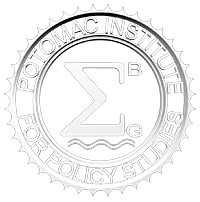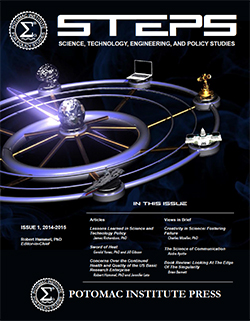If No Action is Taken, Annual Deaths Due to Air Pollution Could Double by 2050
- Details
- Published: Friday, 02 October 2015 16:00
- Written by STEPS
- Hits: 3523
According to the World Health Organization, there are about 3.5 million premature deaths annually due to air pollution. A study published in Nature states that if measures are not taken to control and decrease cur- rent air pollution levels, this number could double to almost 6.8 million premature deaths. This study marked progress towards identifying how major sources of air pollution play a role in this global issue; this could prove useful for policymakers as they shape regulations according to these issues. Conventional perception of air pollution involves industry and automobile emissions. However, other major pollutants include agricultural activities and residential energy use, which is in fact the deadliest source of pollution. The greatest numbers of deaths are likely to occur in India and China, where it has been more difficult to regulate clean energy technologies. The findings of the study are conditional, however. This projection is accurate assuming that all air pollution particles have the same relative toxicity. In addition, the particles could impact some diseases differently than others, potentially altering the outcome. However, based on the most updated epidemiological equations, premature deaths due to air pollution will skyrocket if policymakers do not effectively control emissions. See:http://news.sciencemag.org/environment/2015/09/unless-nations-act-air-pollution-deaths-will-double-2050-study-concludes
U.S. Navy Agrees to Reduce Sonar Testing in Biologically Significant Areas
- Details
- Published: Friday, 02 October 2015 15:50
- Written by STEPS
- Hits: 2932
A federal court ruling earlier this year stated that certain Navy exercises are illegally harming populations of whales, dolphins, and other marine mammals. As a result, the U.S. Navy has reached a settlement with two environmentalist groups in which it has agreed to limit sonar testing that unintentionally harm these populations. The National Marine Fisheries Service (NMFS), the federal agency responsible for protecting marine life, has been in dispute about sonar testing with the Navy for quite some time. The Navy will no longer train in specified areas near Hawaii and southern California. Ships deploy sonar blasts to find submarines; the sound waves released by those blasts can disrupt communication and feeding as well as cause internal and external bleeding in marine mammals. Many whales were found beached and dying in the Bahamas, and related investigations pointed undisputedly to sonar. The Navy agrees that some of their training practices are unintentionally harmful, and has its own Marine Species Modeling Team to calculate the likely injury to marine mammals resulting from training exercises. The current agreement lasts until 2018, after which it will have to be renewed. http://news.sciencemag.org/scientific-commu-nity/2015/09/u-s-navy-limit-sonar-testing-protect-whales
Debate on Gene Editing As Research Technique Continues
- Details
- Published: Friday, 02 October 2015 15:47
- Written by STEPS
- Hits: 2928
Many researchers believe that genetic editing of human embryos is very valuable to understanding early human development and the functionalities of some diseases. The Hinxton Group, an organization composed of members from eight countries, believes that some gene editing is ethically justifiable. This Group was formed to discuss stem cells, ethics, and the respective policy implications. After a group of Chinese researchers published a study that used genome editing, controversy and criticism arose in the scientific community regarding the subject. The Hixton Group met on September 13 and 14, and released a statement highlighting that, while use of these technologies is premature, gene editing in the lab is important to determine which techniques work. Essentially, the Group emphasizes that policymakers should not restrict scientific research unless there is a concrete need to do so. http://news.sciencemag.org/biology/2015/09/research-gene-editing-embryos-justified-group-says
Artificial Intelligence
- Details
- Published: Monday, 29 June 2015 19:39
- Written by STEPS
- Hits: 14267
In a memorandum earlier this month, Secretary of the Navy Ray Mabus outlined his goal to integrate robotics and artificial intelligence (AI) into the Fleet. Ideally, the Navy would develop systems that can act autonomously – not necessarily free-thinking, like the popular conception of AI. Mabus implied that automated robotics and advanced decision-making could shape future warfare, and called on the Navy to capitalize on “recent private sector advances in fields such as machine learning, natural language processing, ontological engineering, and automated planning for naval applications.” Several Navy R&D projects could be primed for system autonomy, including the recently tested unmanned carrier-launched aircraft (UCLASS), the unmanned underwater vehicle (LDUUV), and the “Swarmboat” unmanned surface vessel. See: http://news usni org/2015/06/15/navy-to-accelerate-artificial-in- telligence-development-for-warfighting-support-roles
Investing in Clean Energy
- Details
- Published: Monday, 29 June 2015 19:38
- Written by STEPS
- Hits: 13706
The Obama Administration’s Clean Energy Investment Initiative has received commitments totaling $4 billion from a group of foundations, investors, and others. This investment will be applied to the development of new, clean-energy technologies that will build off of the progress that solar, wind, batteries, and fuel cells have already accomplished. In addition to these investments to move ideas to the laboratory and then to the commercial space, the Obama Administration is also initiating a set of executive actions to further encourage development of clean-energy technologies. The Department of Energy will launch a Clean Energy Impact Investment Center to freely distribute informa- tion about energy and climate programs both within the DOE and other agencies. The Administration will also issue guidance documents on the impact of investments in this sector and developing options for the Small Business Administration to enable long-term capital investment from private foundations and investors. See: Mobilizing $4 Billion in Private-Sector Support for Homegrown Clean Energy Innovation. by Secretary Ernest Moniz on June 16, 2015. https://www whitehouse gov/ blog/2015/06/16/mobilizing-4-billion-private-sector-sup- port-homegrown-clean-energ y-innovation.


